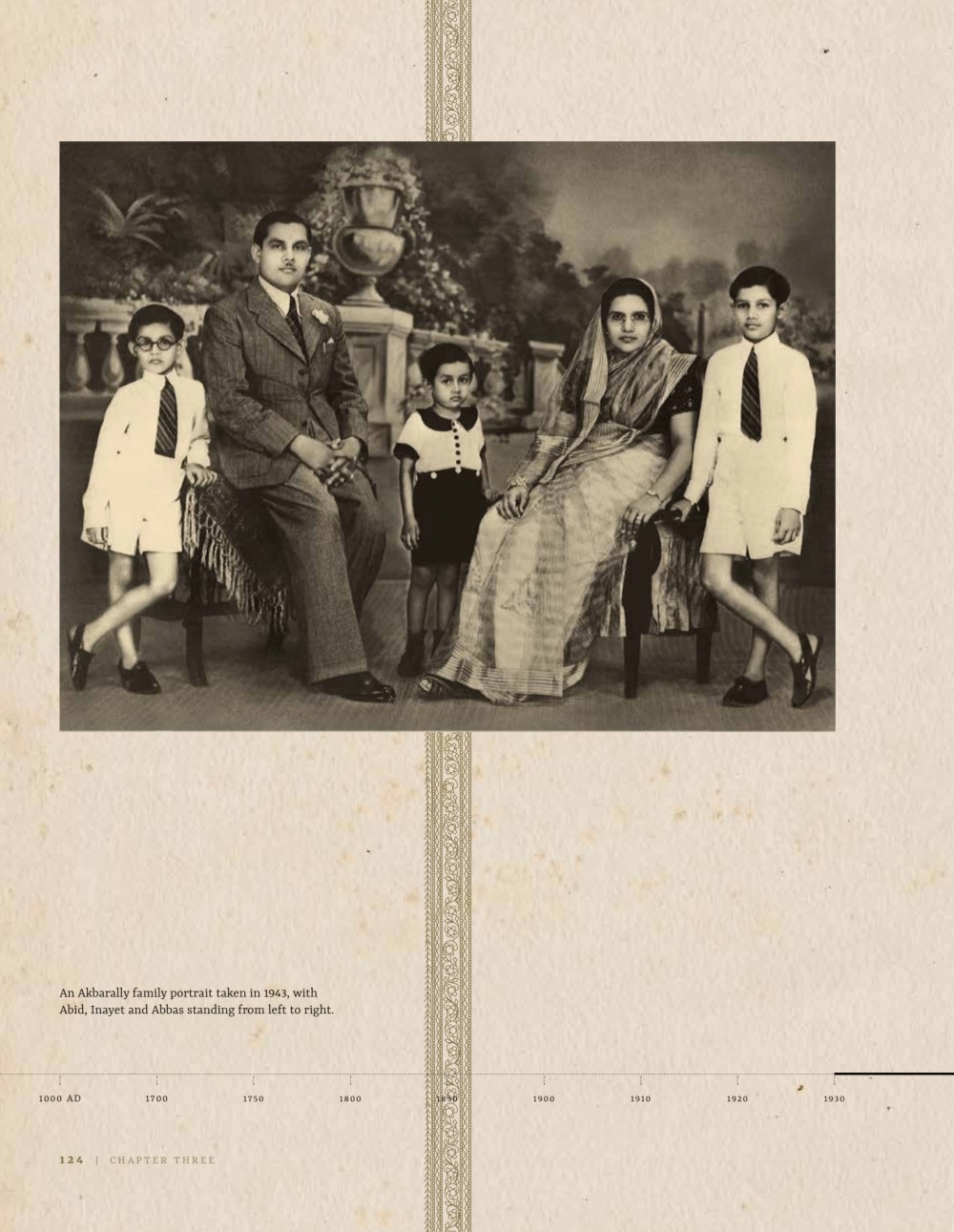
Chapter 03
The Family of Akbarally Tyeabally
When Akbarally Tyeabally married Shirinbai Hebtulabhoy, it was an entwining of two branches of the same family tree. Shirin was the daughter of Akbarally's uncle, Abdulhusein Hebtulabhoy, and she was destined to become the undisputed matriarch of the Akbarally clan.
Akbarally was 20 years old when he married Shirin in 1931. It was a marriage between cousins of two very different temperaments. While Akbarally was fun-loving, gregarious and happy-go-lucky, Shirin was someone who always knew her mind and was much more inclined to take charge and shape her world to the way she thought it should be. Fortunately for the matrimonial home, her formidable personality was tempered by a lively spirit and a caring heart.
Akbarally and Shirin were blessed with three sons: Abbasally, born in 1933, Abidally, in 1935, and Inayetally, in 1937.
1955 was a landmark year for the Akbarallys; it was the year they bought their house on Clifford Place. Having lived in rented properties all his life, the moment Akbarally Tyeabally walked across the threshold into a house he could truly call his own must surely have been one to treasure. The family home at No. 24 Clifford Place became a haven that would hold cherished memories for three generations of Akbarallys.
Meanwhile, Abbas, Abid and Inayet had all started working with their father in the family business [of Hebtulabhoys].
Abbas had been the first to join, soon after completing his SSC in 1951, and had immediately plunged into the world of tea.
Tea tasting is an acquired skill - or perhaps more of an acquired art. It takes a certain innate talent as well as many years of training before a tea taster may be considered proficient. Abbas was inducted into the art first by his father, who was an acknowledged expert in the field, and then by Commander Leefe, who was the chief taster at E John Thomson White (a British produce brokers that later became a part of John Keells).
At the brokering house, he learnt about the subtle differences in the tea leaves that constantly arrived from the plantations, and about how the tea varied from region to region, estate to estate, factory to factory and even day to day. He saw too how consumers' taste for tea varied in different international markets.
In 1953, the firm was converted from a partnership to a private limited liability company and began trading under the name M S Hebtulabhoy & Co Ltd.
Over the years that followed, the Tea and Spices Department built up strong relationships with their buyers. Some clients wanted tea direct from the estates (the British shipped all their tea like this, leaving it to the tea companies in England to blend and brand the teas), while others, like the Arabs, wanted teas that had been blended to suit their taste. Abbas says he learnt from his father that it was critical to earn and retain their clients' confidence.
Most of the Middle Eastern buyers they dealt with were relatively small importers to start with and, in many cases, they grew together.